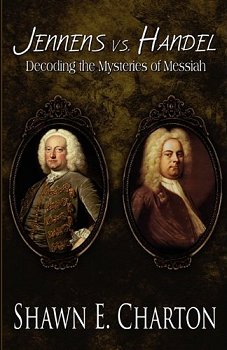
| BOOKS | |||||||||||||||||||||||||||||
|
| DESCRIPTION: "Handel's great oratorio, Messiah, has been a favorite among audiences since its premier performance. As a work of art its choruses and arias (such as Hallelujah!) have grown to be household names among classical music lovers. However, few people realize the precarious politics into which Messiah was born or the clashes that it caused between the librettist, Mr. Charles Jennens, and Handel. Jennens vs. Handel attempts to look at Messiah from both points of view in an effort to better understand the structure and true intents and compromises of the work." |
|
SITE RATING: 6/10 SITE
REVIEW: The author, a
vocal performance and music theory graduate,
has penned this short, densely-packed book
which takes as its main thesis that Jennens,
being a "nonjuror" (i.e., a member of the
benificed clergy in England or Scotland who
refused to make an oath of allegiance to
William and Mary or their heirs) in his
political/religious life, and who purposely
shaped Messiah's
libretto to mirror that stance, placing Handel
in a somewhat precarious situation.
That, coupled with the possiblilty of
both Handel and Jennens being accused of
heresy by the reigning ecclesiastical
powers-that-be for staging a sacred text in a
theatrical venue (with singing actors instead
of respectable singers), is the main thrust of
the book. Unfortunately for the author,
there's no first-hand evidence to support this
theory, and he's left to piece it together
through inference, conjecture, and supposition
- although he supports his own ideas through
similar research done by Hogwood, Tobin and
others. The author also dips his hand
into musical symbolism, the structural drama
of Messiah,
and other closely associated concepts. I
found the initial idea of Jennens' nonjuror
leanings intriguing, but unsustainable through
the entire course of the book, and as the
author got further away from this main idea,
my interest waned. Charnin's prose is
littered with musicological phrases which will
mean nothing to casual readers, and is
otherwise dry, with most chapters being only a
few pages in length. The nonjuror aspect
is intriguing, but unless more concrete
evidence of this scandalous pretext is
uncovered, the supposed "mystery" of Messiah
is best left to the dramaturge.
|
The Compleat
Messiah All Content Copyright © 2015 Bret D.
Wheadon
All Rights Reserved.
All Rights Reserved.
